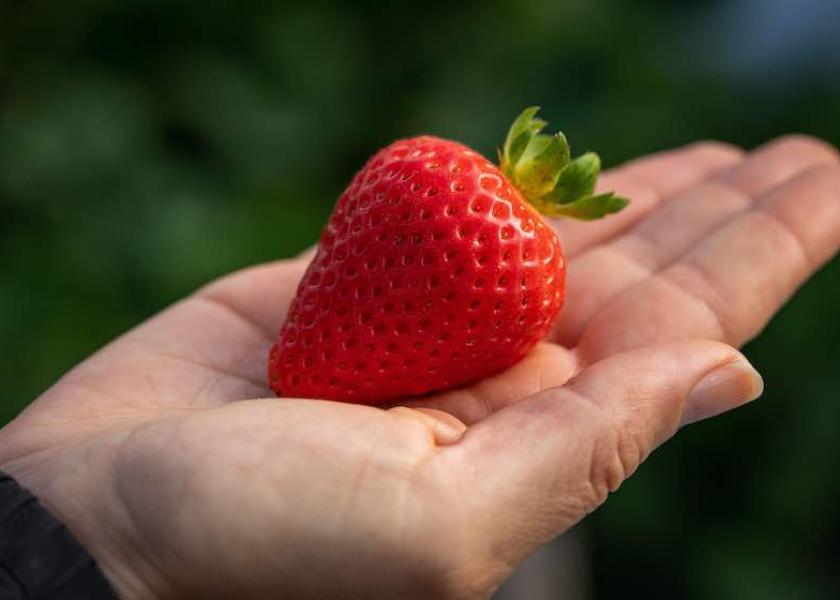UC Davis releases 5 strawberry varieties resistant to deadly fungal disease

The University of California, Davis, is releasing five new strawberry varieties that are resistant to the soilborne disease Fusarium wilt, have high yields and improved fruit quality.
UC Eclipse, UC Golden Gate, UC Keystone, UC Monarch and UC Surfline are available for sale to California nurseries from Foundation Plant Services, according to a news release.
Roughly 88% of strawberries grown in the U.S. come from California. Fusarium wilt is one of the most common reasons for crop loss and death, and yet 55% to 59% of cultivars planted in the state since 2014 have not been resistant, according to UC Davis research.
This is the first release from the UC Davis Strawberry Breeding Program where all the cultivars have Fusarium wilt resistance, the release said. They are meant to replace susceptible plants on the market such as Monterey, UCD Royal Royce and UCD Valiant, according to the release.
Monarch was also developed specifically as a prototype for mechanical harvesting — another first out of the breeding program, which dates to the 1930s and has released 72 patented cultivars over the decades.
“These provide the same yield or better and they are Fusarium resistant,” Steve Knapp, a distinguished professor in the Department of Plant Sciences and director of the UC Davis Strawberry Breeding Program, said in the release. “They have a better collection of traits. They’re superior.”
Dangerous pathogen
Fusarium wilt didn’t present much of a danger to strawberry crops until after the fumigant methyl bromide was phased out of use in the U.S. in 2005. But the pathogen had always been in the soil, and cases of wilt appeared a year later and increased over time, leading to concerns that a Fusarium wilt pandemic could destroy the crop in California, according to the release.
“The disease has taken off fast and we need to react quickly to address the need,” Glenn Cole, a breeder and field manager with the Strawberry Breeding Program, said in the release.
Knapp said the program tries to “encourage people to consider things like disease resistance” and routinely invites growers and other experts to events showcasing research breakthroughs and improved cultivars.
Varieties for the seasons
The new strawberry varieties each have improved flavor and characteristics that allow for near year-round growing around California, where about 1.8 billion pounds of the fruit are harvested each year. Some of the cultivars are adapted for production in the southern part of the state while others do well under the long daylight hours of summer along the coast.
UC Eclipse, a “summer plant” cultivar, has the potential to increase grower profitability as it produces in the fall and winter, and yields during research testing were 54% higher than similar cultivars, the release said.
“We expect this cultivar to have wide commercial appeal,” Knapp said in the release. “Eclipse is going to eclipse them all.”
UC Golden Gate and UC Keystone are “day neutral.” Those type of cultivars grow throughout the summer on about 60% of strawberry farming acres in the state. The “short-day” plants Surfline and Monarch are resistant to Verticillium wilt and Phytophthora crown rot, the release said.
UC Surfline and UC Eclipse are firmer and promise longer shelf lives. Monarch provides growers with improved fruit qualities relative to other mass-produced cultivars and has characteristics needed for advances in mechanical harvesting, Knapp said.
Genetic tools
Breeding program experts have long been researching ways to improve strawberry cultivars so the crop can withstand pests, disease and other stressors. To find plants that had Fusarium wilt resistance, they obtained the DNA of thousands of plants in field studies. The scientists also developed genetic tools to screen the plants and identify the genes that have resistance to the Fusarium pathogen.
Knowing that information allowed the team to breed resistance into and develop new cultivars, at a faster rate than previous efforts.
“These tools have allowed us to sweep out the susceptibility and bring in resistance,” Knapp said in the release.







